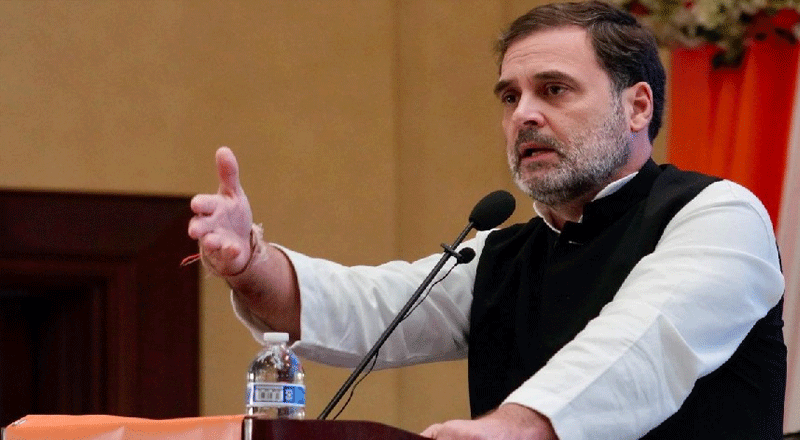Karnataka Chief Minister Siddaramaiah recently retracted a social media post announcing 100% reservation for Kannadigas in all Group C and Group D jobs in private companies within the state. This move sparked a significant controversy and prompted immediate clarification from Labour Minister Santosh Lad. Lad stated that job reservations in private firms would actually be capped at 70% for non-management roles and 50% for management-level employees.
Clarification on Job Reservations
Lad further explained that while the government aims to provide 70% of non-management jobs and 50% of management jobs to Kannadigas, companies could hire externally if they cannot find suitable skilled candidates locally. “If such skills are not available among Kannadigas, then the jobs can be outsourced. The government is working on a law to give preference to locals if skilled labor is available,” Lad said. He assured that Karnataka has a sufficient skilled workforce due to numerous engineering and medical colleges and international schools. “Karnataka has enough skilled workforce. There are so many engineering colleges, medical colleges, international schools… We are asking them to give 70% of work to Kannadigas. If enough talent is not available, they can bring from outside,” he added.
Initial Announcement by Siddaramaiah
On Tuesday, Siddaramaiah posted on X (formerly Twitter) about the cabinet’s approval of a bill mandating 100% recruitment of Kannadigas for ‘C and D’ grade posts in all private industries. He emphasized the government’s desire to ensure Kannadigas lead comfortable lives in their state and are not deprived of job opportunities. “The Cabinet meeting held yesterday approved a bill to make recruitment of 100% Kannadigas mandatory for ‘C and D’ grade posts in all private industries in the state,” he said.
Backlash from Business Leaders
The announcement faced strong backlash from industrialists, who criticized the decision as discriminatory and potentially harmful to Karnataka’s economy. Mohandas Pai, Chairman of Manipal Global Education Services, labelled the bill “discriminatory” and “fascist,” drawing a comparison to George Orwell’s “Animal Farm.” “This bill is discriminatory, regressive… this is a fascist bill, as in ‘Animal Farm’ (the George Orwell novel),” Pai said on X. Biocon Executive Chairperson Kiran Mazumdar-Shaw welcomed the proposal but insisted on exemptions for highly skilled recruitment. She stressed that while the goal is to provide jobs for locals, the policy should not compromise Karnataka’s position as a tech hub. “As a tech hub we need skilled talent and whilst the aim is to provide jobs for locals, we must not affect our leading position in technology by this move. There must be a caveat…” she said on X.
Concerns and Reassurances
RK Misra, co-Chairman of ASSOCHAM Karnataka, described the proposal as “short-sighted” and warned it would scare away companies. “Another genius move from the Government of Karnataka. Mandate LOCAL RESERVATION and APPOINT GOVT OFFICER IN EVERY COMPANY to monitor. This will scare (companies)… short-sighted,” Misra said. In response, Santosh Lad promised to address these concerns, stating, “We respect their apprehensions and their views. We will talk to them.”
Government’s Commitment to Resolve Issues
Commerce and Industries Minister HB Patil acknowledged the concerns of industrialists and reassured them that the government would resolve any confusion to prevent adverse effects. He highlighted the importance of states like Karnataka being competitive in the global manufacturing and industrial revolution. “I have seen that many people have apprehensions… we will resolve this confusion… so that it does not have any adverse effect,” Patil said. He emphasized that Karnataka could not afford to lose in this “once-in-a-century race of industrialization.” “India is experiencing a manufacturing and industrial revolution… In this competitive era, states like Karnataka, Maharashtra, Tamil Nadu, and Telangana are striving to be at their best. It is of utmost importance for all states to be at their competitive peak,” he declared.
Details of Karnataka’s Job Reservation Proposal
Drafted by the Labour Department, the proposed bill responded to the trend of jobs being given predominantly to people from northern states who then settled in Karnataka. It suggested that Karnataka-based companies benefiting from state-provided infrastructure should reserve jobs for locals. The proposal echoed recommendations from the Sarojini Mahishi Committee, which called for large, medium, and small-scale industrial units with over 50 workers to reserve 65% and 80% of Group A and Group B jobs for Kannadigas, respectively. The committee also recommended that all Group C and Group D jobs be reserved for Kannadigas.
As Karnataka navigates this complex issue, the outcome will significantly impact the state’s industrial landscape and its workforce. The government’s ability to balance local job reservations with the needs of a globalized economy will be crucial in maintaining Karnataka’s economic growth and competitive edge. The resolution of this controversy will serve as a key indicator of how the state can manage local aspirations while attracting and retaining global businesses. The challenge lies in ensuring that local talent is prioritized without compromising the state’s position as a leading tech and industrial hub.
(With inputs from agencies)





